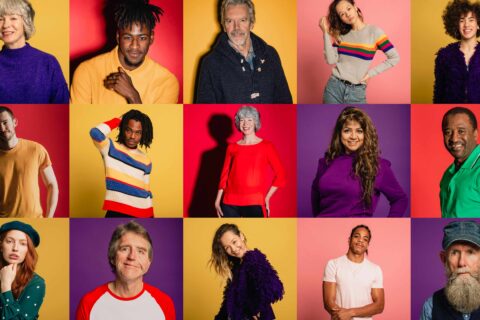An occasional series by Simon Chadwick on the post-crisis future of our industry
“Everyone is entitled to his own opinion, but not to his own facts” – Daniel Moynihan
As democracy ebbs around the world and populism and dictatorships flourish, facts have increasingly become a casualty. As citizens, we have become far too used to “alternative facts”, “truthiness” and “fake news”. And as we have done so, we have retreated into our own bubbles where our own version of the facts becomes religion, sometimes dangerously so. Social media has made such bubbles much easier to sustain, with algorithms designed specifically to ensure that we see content – and interact with people – with which we agree.
None of this (perhaps with the exception of social media) is, of course, new. Dictators and other forms of authoritarian government have been using alternative fact propaganda for centuries and societies have many times found themselves riven by virulent disagreement based on differing versions of “truth”. But that does not mean that this is a state of affairs that we have to accept today. In the age of science and measurement, we should expect there to be a baseline of fact that we can trust. As Daniel Moynihan said, it is perfectly acceptable that we can have differing opinions on the meaning of those facts, but surely it is not beyond our ability to at least agree on what the facts are.
The operative word here, however, is “trust”. GRBN’s newly released report on the state of trust in the world makes for depressing reading. The least-trusted organizations in the ten countries surveyed were media companies and social media sites – the two biggest sources of “fact” for the vast majority of us. Governments fare a little better but still come 9th down the list of fifteen types of organization measured – unless you live in the United States, where net trust in the government is negative. Sadly, market research is only actively trusted by a third of respondents worldwide, while data analytics and opinion polling fare even worse.
Think about this. The very institutions and organizations that we need to be able to trust to establish the facts are, in fact, either not trusted enough or actively distrusted.
So, here are two questions which, when combined, suggest a formidable opportunity:
Question 1: What does market research have to do to gain/restore public trust?
Question 2: How can research and analytics help to provide a confused and divided public with facts they can trust?
The answer to the first, I suspect, is to demonstrate to the public the vast social good that research can and does do. I’m not talking about run of the mill tactical commercial research but research with deep, lasting social consequences for good. ESOMAR features such work at every Congress and it can be mind-blowing. Who can forget the work done to successfully reduce the incidence of AIDS in seven Southern African countries a few years ago? This is work that needs to be broadcast far and wide, not just at conferences and in learned journals.
The seeds to answering the second question have already been sown but I believe are being hidden from general view. These are the repositories of studies being done to shed light on COVID-19 that have been built by the likes of ESOMAR, Insights Association, the MRS and the Research Society – compendiums of data and insight on how the crisis is affecting not only business and society but individuals and families. Many, many research companies are doing excellent work in this respect and a few – most notably Ipsos – are managing to get that work out into the public domain. But much of it still remains hidden, accessible only to researchers and marketers.
Now take this idea a little further. What if we could combine these repositories into one public domain, accessible for free by all – media, governments and the public? And what if it were not just surveys, but statistics and data on all sorts of aspects of public life – the economy, jobs, health, poverty, immigration? What if we, as an industry, were to build the most robust, publicly accessible fact room where people seeking reality could go to assess truth?
To build such a thing would obviously not be cheap and would be highly complex. But why do it alone? Why not build a consortium of research and data analytics associations, foundations, non-governmental organizations and statistical bodies to build the Google of Fact? When researching for my book, For the People, I was amazed at the resources that were out there – resources such as the Kaiser Foundation, the OECD and Economist Intelligence Unit. Just recently, in researching racism against indigenous Americans, I was staggered to find out that the UK’s Royal Statistical Society had started a data-based initiative to look into this very thing.
“You may say I’m a dreamer, but I’m not the only one” – John Lennon
Yes, this is a big dream. But it’s not impossible. It could be set up as a foundation in its own right and big donors could be found to finance it. We have the intellectual resource to know how to do it. The technology already exists to build it – hell, bring Google into the mix as financier and technology provider!
We need to restore the primacy of fact. Until we do, our world will remain a dangerous, divided place in which deceit will lead us to the brink of hatred and war, something we promised ourselves decades ago would never happen again.


